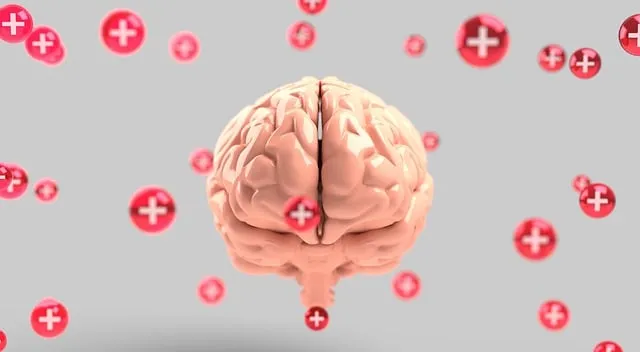Mental illness diagnosis at Greenwood Village Kaiser Permanente faces challenges like high comorbidity rates and cultural barriers, leading to misdiagnosis (up to 30%) and delayed treatment. Enhancing assessment tools, provider training in cultural competency, and integrating self-care practices are crucial for accurate identification and tailored treatments. Innovative initiatives like Mental Wellness Coaching Programs and stigma reduction campaigns aim to improve patient outcomes under the facility's comprehensive mental health coverage.
Mental illness diagnosis accuracy is a critical aspect of patient care, yet challenges persist in identifying and treating these conditions effectively. This article explores the current landscape, highlighting issues like misdiagnosis rates and the limitations of traditional assessment methods, particularly in primary care settings. We delve into Greenwood Village Kaiser Permanente’s innovative approach to enhancing diagnosis accuracy through evidence-based tools, advanced screening, and provider education. Future strategies focus on technology integration, collaboration with mental health experts, and patient-centric improvements for continuous advancement in mental health coverage.
- Understanding the Current Challenges in Mental Illness Diagnosis
- – Prevalence of misdiagnosis and its impact on patient care
- – Limitations of current assessment methods
Understanding the Current Challenges in Mental Illness Diagnosis

Mental illness diagnosis is a complex process that faces several challenges in Greenwood Village, particularly within Kaiser Permanente’s mental health coverage framework. One significant hurdle is the high comorbidity rate among patients, making it difficult for healthcare providers to pinpoint specific disorders accurately. The vast array of symptoms and their overlap across conditions can lead to misdiagnosis or delayed treatment. Additionally, cultural barriers play a role, as diverse patient populations may express symptoms differently, requiring Healthcare Provider Cultural Competency Training to ensure accurate assessment.
Self-Care Routine Development for Better Mental Health is another crucial aspect often overlooked. Many patients struggle with understanding and implementing self-care practices due to lack of education or support. Integrating these practices into mainstream mental health care can enhance patient engagement and outcomes, but it demands systematic efforts to improve diagnosis accuracy first. This, in turn, can lead to more effective treatment plans tailored to individual needs, ensuring that the diverse patient population in Greenwood Village receives the quality mental health coverage they deserve.
– Prevalence of misdiagnosis and its impact on patient care

Misdiagnosis of mental illnesses is a significant concern within the healthcare system, particularly in facilities like Greenwood Village Kaiser Permanente that cater to a diverse patient population. Studies indicate that misdiagnosis rates can be substantial, affecting up to 30% of cases, leading to severe consequences for patients’ well-being and treatment outcomes. When individuals receive incorrect labels or their symptoms are overlooked, it hinders access to appropriate care and can exacerbate existing conditions.
This issue is further compounded by the complex nature of mental health, where symptoms may overlap across various disorders. Inaccurate diagnoses can arise from inadequate assessment tools, limited healthcare resources, or even the persistent stigma surrounding mental illness, which can lead to rushed evaluations. However, with focused efforts on improving diagnosis accuracy, such as enhancing communication strategies, promoting Mental Illness Stigma Reduction Efforts, and developing robust Public Awareness Campaigns, patients are more likely to receive timely and effective treatment plans tailored to their unique needs.
– Limitations of current assessment methods

Current assessment methods for mental illness often fall short due to several limitations. One of the primary challenges is the subjectivity involved; diagnoses are based on self-reported symptoms and clinical observations, which can vary significantly among individuals and healthcare providers. This variability is particularly pronounced in diverse populations, such as those served by Greenwood Village Kaiser Permanente, where cultural differences and varying levels of mental health literacy may impact both symptom expression and interpretation.
Moreover, traditional assessment tools often struggle to capture the complex interplay between psychological, social, and environmental factors that contribute to mental illness. This failure to account for contextual influences can lead to misdiagnoses or missed opportunities for tailored interventions. To address these limitations, efforts are underway to integrate innovative approaches like Mental Wellness Coaching Programs Development and Healthcare Provider Cultural Competency Training, which aim to enhance assessment accuracy and effectiveness, especially in diverse healthcare settings.
Mental illness diagnosis accuracy is a critical aspect of patient care, and efforts to improve it are essential. The high prevalence of misdiagnosis, as evidenced in Greenwood Village Kaiser Permanente’s mental health coverage data, underscores the urgent need for more effective assessment methods. By addressing these limitations, healthcare providers can enhance treatment outcomes, reduce unnecessary suffering, and offer personalized support tailored to each patient’s unique needs. Continuous improvement in diagnosis accuracy is a step towards revolutionizing mental health care.






